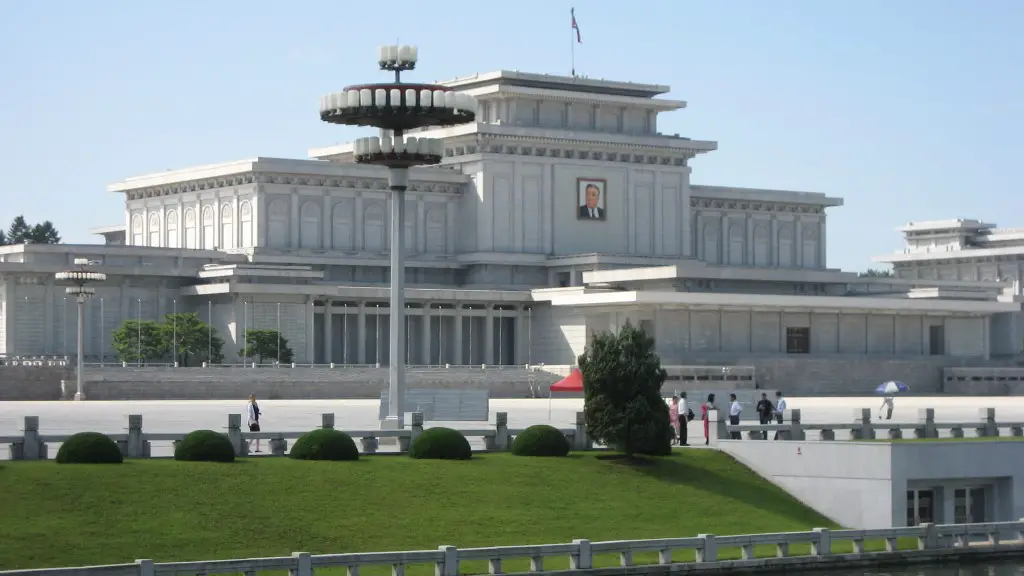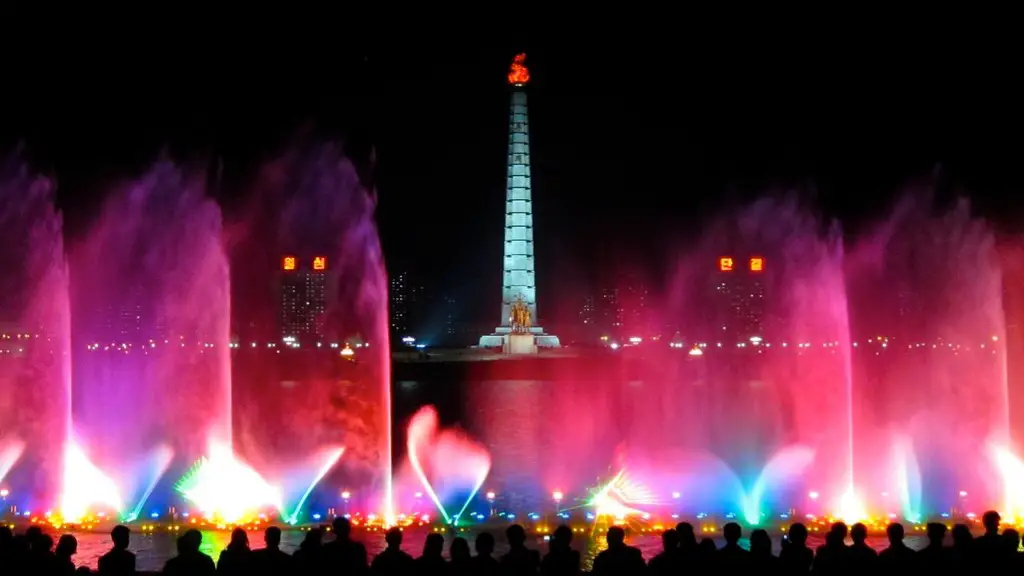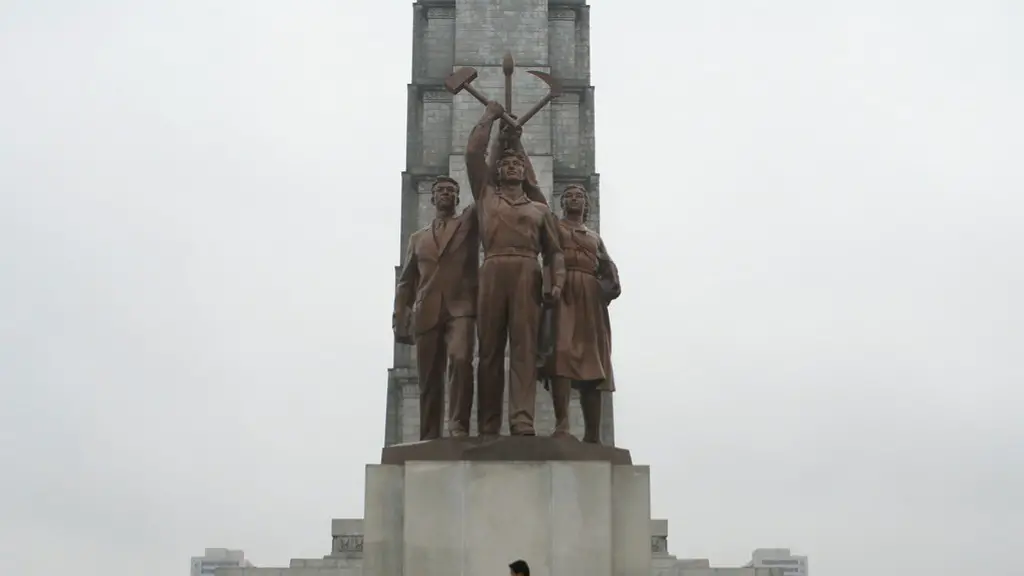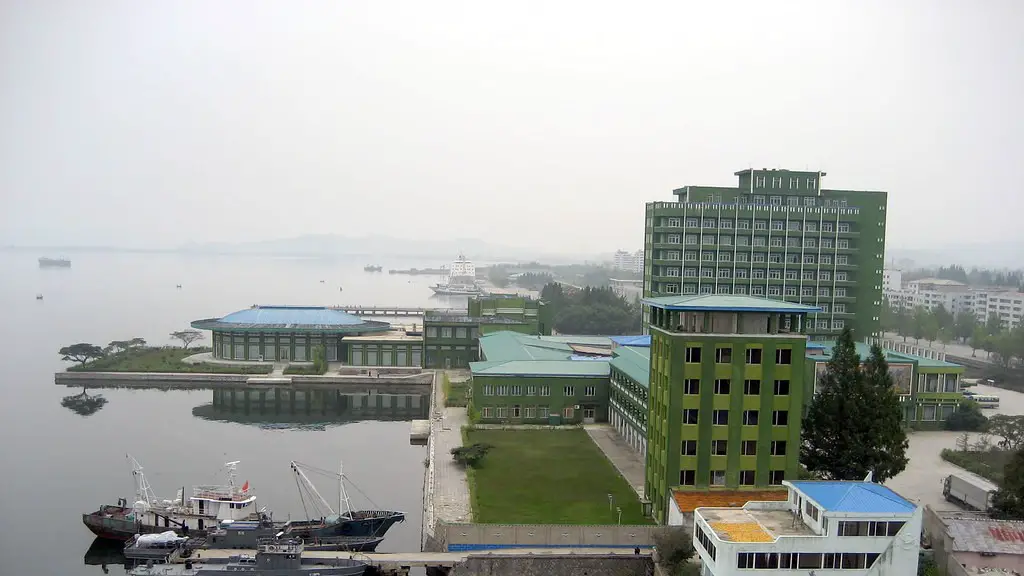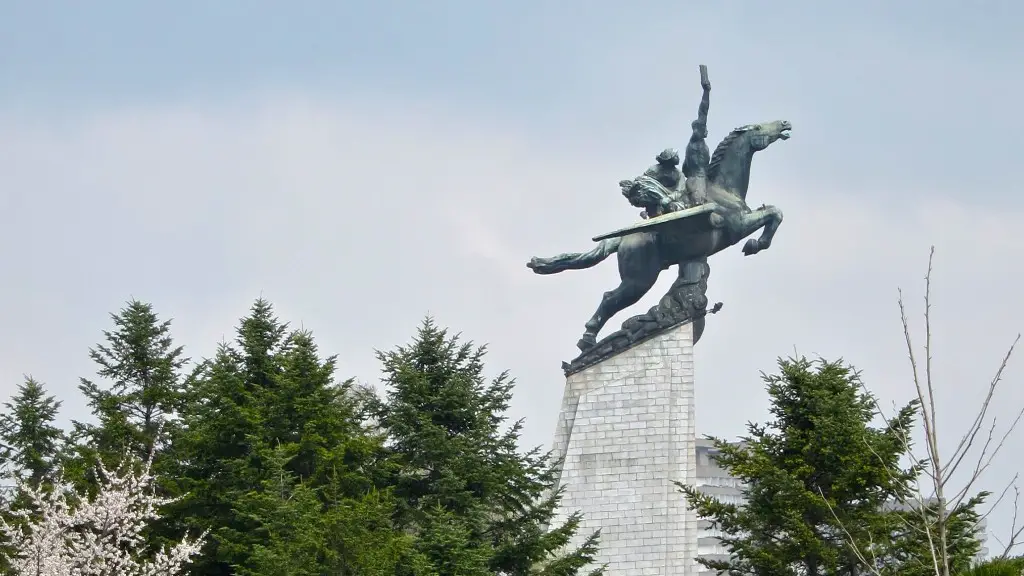Since the Korean War, North Korea has been an authoritarian regime. The government controls everything in the country, from the media to the economy. The people have no say in how the country is run, and dissent is not tolerated. human rights violations are commonplace, and the government does not hesitate to use violence to maintain control.
Yes, North Korea is an authoritarian regime.
The North Korean political system is built on the principle of centralization. The constitution defines North Korea as “a dictatorship of people’s democracy” under the leadership of the Workers’ Party of Korea (WPK), which is given legal supremacy over other political parties. The WPK controls all aspects of the government and society, and the country is effectively a one-party state. North Korea’s government is highly authoritarian, and decisions are made centrally by the WPK leadership. There is little room for dissent or independent thought, and the government tightly controls the media and public information. North Korea is a highly centralized state, and the government controls all aspects of the economy and society.
It is interesting to note that all the Axis powers had totalitarian or authoritarian governments, and yet two of the three were eventually replaced by governments based on democratic constitutions. This seems to suggest that democracy is a more resilient form of government than totalitarianism or authoritarianism.
The Economist Intelligence Unit’s ” Democracy Index” for 2022 rated South Korea as a “full democracy.” This is based on a number of factors, including freedom of expression, freedom of association, and the rule of law. South Korea has been steadily moving towards democracy since the end of the military dictatorship in 1987, and this rating is a reflection of that progress.
The North Korean government continues to be a Jucheist state under the rule of the Workers’ Party of Korea. In South Korea, the National Security Law has been used to criminalize advocacy of communism and groups suspected of alignment with North Korea. This has resulted in a tense relationship between the two countries.
There are two main types of government systems – the authoritarian system and the totalitarian system. The authoritarian system only wants full political power, but does not go beyond that. The totalitarian system, on the other hand, wants power over EVERYTHING. They seek power beyond governmental rule and begin to intrude into the Ideology of everyone under their rule.
The system of government in Korea is a pluralistic, democratic and presidential system. The president is elected by popular vote every five years, for one term only. The President Appoints the Prime Minister and has the right to release him from his duties.
While authoritarian leadership can be effective in some cases, it is not a leadership style that is universally accepted or effective. Some notable examples of leaders who have used authoritarian leadership include Adolf Hitler, Benito Mussolini, Bill Gates, Kim Jong-un, Larry Ellison, Lorne Michaels, Richard Nixon and Vladimir Putin. While this leadership style can be effective in some cases, it is important to note that it is not without its criticisms.
There are three main types of authoritarian governments: absolute monarchies, dictatorships, and totalitarian states. Absolute monarchies are governed by a single ruler who has absolute power over the country. Dictatorships are governed by a single ruler who has complete control over the government and the people. Totalitarian states are governed by a single party that controls all aspects of the government and the people’s lives.
In 1992, Kim Young-sam, former democracy activist and opposition party leader, having joined the ruling party, was elected president. As a result, almost 30 years of rule by Generals came to an end. This signaled a continued develop of democracy in the nation.
The authoritarian rule in the country has led to social and political unrest, but the economy has continued to flourish. This is due to the export-based industrialization policy that the government has adopted. This policy has helped to boost the country’s exports and has also led to the development of new industries. This has in turn helped to create new jobs and has increased the standard of living of the people.
When did the North Korean dictatorship start?
What are some things you can do to be a good citizen?
Some things you can do to be a good citizen are: obey the law, vote, pay taxes, recycle, help your community, and be polite.
Kershaw argues that fascism is a form of right-wing authoritarianism that is different from other forms in the Interwar period because it is revolutionary. Fascism seeks to change society and obtain total commitment from the population.
Anti-authoritarians believe in full equality before the law and strong civil liberties. Sometimes, the term is used interchangeably with anarchism, an ideology which entails opposing authority or hierarchical organization in the conduct of human relations, including the state system.
Totalitarianism is a form of government in which the state holds absolute power and controls all aspects of society. Totalitarian states typically have a single party that controls the government and uses propaganda and terror to maintain power. Other modern examples of totalitarian states include the Soviet Union under Joseph Stalin, Nazi Germany under Adolf Hitler, the People’s Republic of China under Mao Zedong, and North Korea under the Kim dynasty.
What is the political system of North and South Korea?
The two Koreas have been sharply divided since the 1950-53 Korean War, which ended in an armistice. North Korea has beenisolated internationally for its nuclear and ballistic missile program as well as human rights abuses. South Korea on the other hand has developed economically into a global powerhouse, with a thriving democracy and close relationships with the US and other Western nations.
An authoritarian leadership style is often seen as a negative leadership style, as it can result in low morale and a lack of motivation among team members. Additionally, an authoritarian leadership style can also lead to a lack of creativity and innovation, as team members may feel they are not able to contribute new ideas.
What type of leader is Elon Musk
Elon Musk’s leadership style is transformational. He is always looking for ways to improve and is very passionate about his vision. He is able to inspire his team and has many big ideas. He is a risk taker and is not afraid to put forth new and innovative ideas. His leadership style has helped him to achieve great success.
There is no one right leadership style and the most effective style depends on the specific situation. However, autocratic leadership is generally considered to be less effective than other styles, particularly in today’s business environment. This is because it can lead to negative consequences such as employee dissatisfaction and high turnover. In addition, autocratic leadership can stifle creativity and innovation.
Final Words
Yes, North Korea absolutely is an authoritarian regime. The country is controlled by a single party, the Workers’ Party of Korea, and the government exercises complete control over the population. North Koreans are not allowed to freely express their opinions or participate in the political process, and dissent is not tolerated. Media is tightly controlled and only provides positive information about the government and the ruling party. The economy is also centrally planned, and citizens have limited choices when it comes to employment, housing, and other essential needs.
While there is no denying that North Korea is an authoritarian regime, it is important to remember that the country is still in a state of flux. There is a lot of potential for change in North Korea, and it is possible that the country could become more open and tolerant in the future.
